By Doug Holder
The last time I was at the Ames Envelope factory building in Somerville, Mass. it
produced envelopes and such. But the times have changed and it is now occupied
by the Artisan's Asylum. In the lobby of the Asylum I was met by Molly Rubenstein.
She is an intelligent, hard -working, 20-something Yale graduate with a gift
for expression, and a lot of energy. Rubenstein has been at the Artisan's Asylum for
three years and for much of that time lived in Somerville, but recently
defected to the Republic of Cambridge. The Artisan's Asylum houses 150 studios,
of 50 to 250 square feet. They are demarcated by low barriers, so people can
readily see each other. This according to Rubenstein fosters community and
communication. The Artisan's Asylum was in
the forefront of the “Makerspace” movement of the past decade, where craftsmen,
engineers, artists, writers and others share a large space, share resources,
and create within a supportive and creative milieu. Rubenstein told me: “25% of
the people here have active businesses, and another third are developing
businesses.”
Within this building are state of the art computers, tools,
and a whole array of material and resources members of the community can draw
from. The Asylum is for the most part staffed by volunteers. The exceptions are
Rubenstein, Robert Masek—the operations manager and Jessica Muise—the member
services director. Gui Cavalcanti, the founder, is not part of the
administration anymore but he maintains a studio where he works on robotic
projects.
Rubenstein is a very adept guide, and showed me around this
high- tech and low-tech maze of studios, work spaces, tangles of arcane
equipment, the gangly arms of robots, the twisted beauty of metalwork pieces by Gretchen Greene, a
common space inspired by the TV show “Dr. Who”—a veritable carnival of ingenuity
and creativity.
Being an “old school” kind of guy I was glad to have
Rubenstein act as a translator for this new world. One place she showed me was
a bike shop which consisted of reconstructed bicycles, with things like Barbie
Dolls and Voodoo heads attached to the handle bars. Bikes are often constructed
from parts found in scrap or junk yards and old, discarded bikes. The shop is
run by long-time Somerville group named the "SCUL”.When driving home at night
you may see this group in a fleet of eccentric tall bikes and their owners traversing
the streets of Somerville.
Rubenstein also showed me the studio for the “3 Doodler”
project invented by Maxwell Bogue and Peter Dilworth. This project, that was funded by a successful
Kickstarter campaign developed a 3D printing pen that creates intricate paper
and plastic images. Rubenstein showed me a lovely 3D representation of the
Eiffel Tower and something decidedly more abstract that this gem of a pen
created.
Later I was introduced to a gangly fellow, with skinny arms
and legs—no—not me--but a robot named “Stompy.” This denizen of the Asylum
looks a bit like an elevated metallic crab that has been developed as part of “
Project Hexapod.” It can be used for entertainment purposes, but it also has
possible applications as a walking terrain vehicle to transport material-and
according to Rubenstein can prove to be helpful with the many natural disasters
we face today.
Rubenstein also showed me their impressive woodworking shop,
their welding spaces, their advanced computer center, where I saw a couple of
youngish engineers working on various projects. The center is sponsored by a
number of concerns including: AUTODESK, MATHWORKS, SOLIDWORKS and others.
Rubenstein also told me about the impressive number of courses that are offered
in the Asylum and that are open to the public.
Of course the subject of the gentrification of Somerville
reared its ugly head. The city is increasingly expensive and in spite of what
the powers-that-be say—if you been around the block a little you know the
drill: a lot of folks are going to be displaced. Rubenstein said: “We have a 5
year lease. We are a non-profit, but we have outside funding. We are looking to
get long term support as our rent will likely double. “ In that case, and many
others, unique and creative enclaves that have given the city an enviable cache
will be forced to move out to places like Lynn and Malden—further away from the
center of the city.
The Asylum is open to all of the community with just a very
few exceptions, like people who work with toxic substances, etc… Rubenstein said to
get a space here may not seem cheap, but it is if a person thinks of the
resources: tools, computers, material, machines it offers it is a bargain.
Hopefully with its hunger for reinvention the city will not
eat its own, and leave Union Square just another place with trendy
restaurants, and luxury condos. And that my friend—is the way it is-in the
“Paris of New England.”









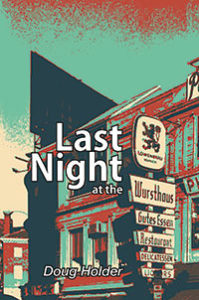




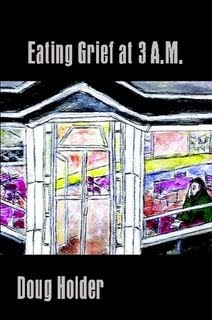
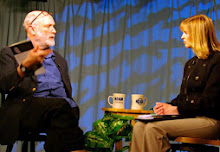
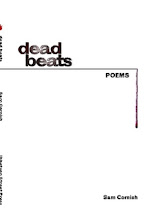







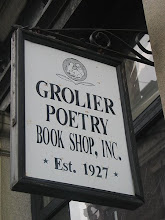


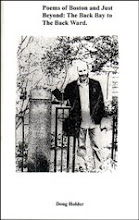
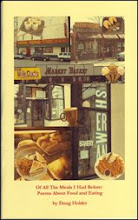




No comments:
Post a Comment